At the end of Netflix’s ‘A Normal Woman,’ the sinister truth behind Milla’s mysterious illness finally comes to light, and alters the trajectory of her life. Although at first glance, her family appears to be perfect, the cracks within soon begin to show, and ultimately, take a toll on the protagonist’s psyche. The result is a set of symptoms that affect both her mind and body. Her efforts to solve the mystery take her deeper into her past, and new characters come into the picture, answering some questions while creating many more in the process. As such, the ending is a clash between past and present, but more importantly, between reality and illusion. SPOILERS AHEAD.
A Normal Woman Plot Synopsis
The story opens with the wealthy Gunawan family posing for the prestigious High Lane Magazine. Liliana, the matriarch, wields significant control over the power couple, Milla and Jonathan, as well as their daughter, Angel. The latter in particular is subjected to repeated harassment for her physical appearance, especially when contrasted with her attractive mother. This prompts Liliana to suggest a cosmetic surgeon for Angel, something her mother vehemently disagrees with. However, this exchange appears to have triggered something in Milla, as she soon develops an irresistible itch, leading her to claw into her skin and draw blood. Gradually, the itching takes root all over her body, and a doctor is consulted, who suggests having ample rest, though the problem quickly takes a turn for the worse.

In addition to the itch, Milla also begins to see visions of a girl with a disfigured face, who calls her by the name of Grace. When the protagonist attempts to probe deeper into Grace’s identity, her mother and her caretaker both try to shut her out, hinting at a secret hiding beneath the surface. Milla falls deeper into the rabbit hole, with hallucinations of puking out glass, coupled with a rash that spreads all over her face. The doctors believe that her illness is psychological in nature, and a cure remains to be found. As a result, Liliana forbids her from participating in the former’s birthday party. At the same time, a makeup artist named Erika enters the fray and claims to be Milla’s childhood friend. Soon, secrets about Grace’s identity start coming to light.
Milla’s illness drives a wedge in the family, and Jonathan ultimately decides to lock Milla up in a room. Her only solace seems to be her daughter, who raises her voice against the harassment her mother has to endure. Meanwhile, Erika begins to interact more closely with the family and finds her way into their good books. Later, at the party, Liliana reaps praise from her guests but is shocked by the arrival of Milla, who uncovers the family’s carefully engineered facade of a perfect life and shows the glaring cracks underneath. As a result, their reputation, as well as their business prospects, soon begin to tumble, and Milla’s fate gears for a climax, one that involves coming to terms with who Grace really is.
A Normal Woman Ending: Is Milla’s Escape a Dream or Reality?
The final sequence of ‘A Normal Woman’ is a riveting quest for liberation, as Milla attempts to break free of the Gunawan residence and all of its oppressive practices. However, the reality of her escape comes into question due to a number of elements in the way it is presented. Milla’s departure is built on the back of a series of intense scenes, which leave a trail of blood and tears, as she bids her daughter a tearful goodbye and makes a run for the door. Prior to this, we learn that she plans to escape with Hatta to his native village, and to that end, we see her climbing on his truck and hiding amongst plants. As Hatta’s truck drives off, the protagonist breathes a sigh of relief, and we are shown visions of her life in the village, which is marked by a sense of quiet and freedom.
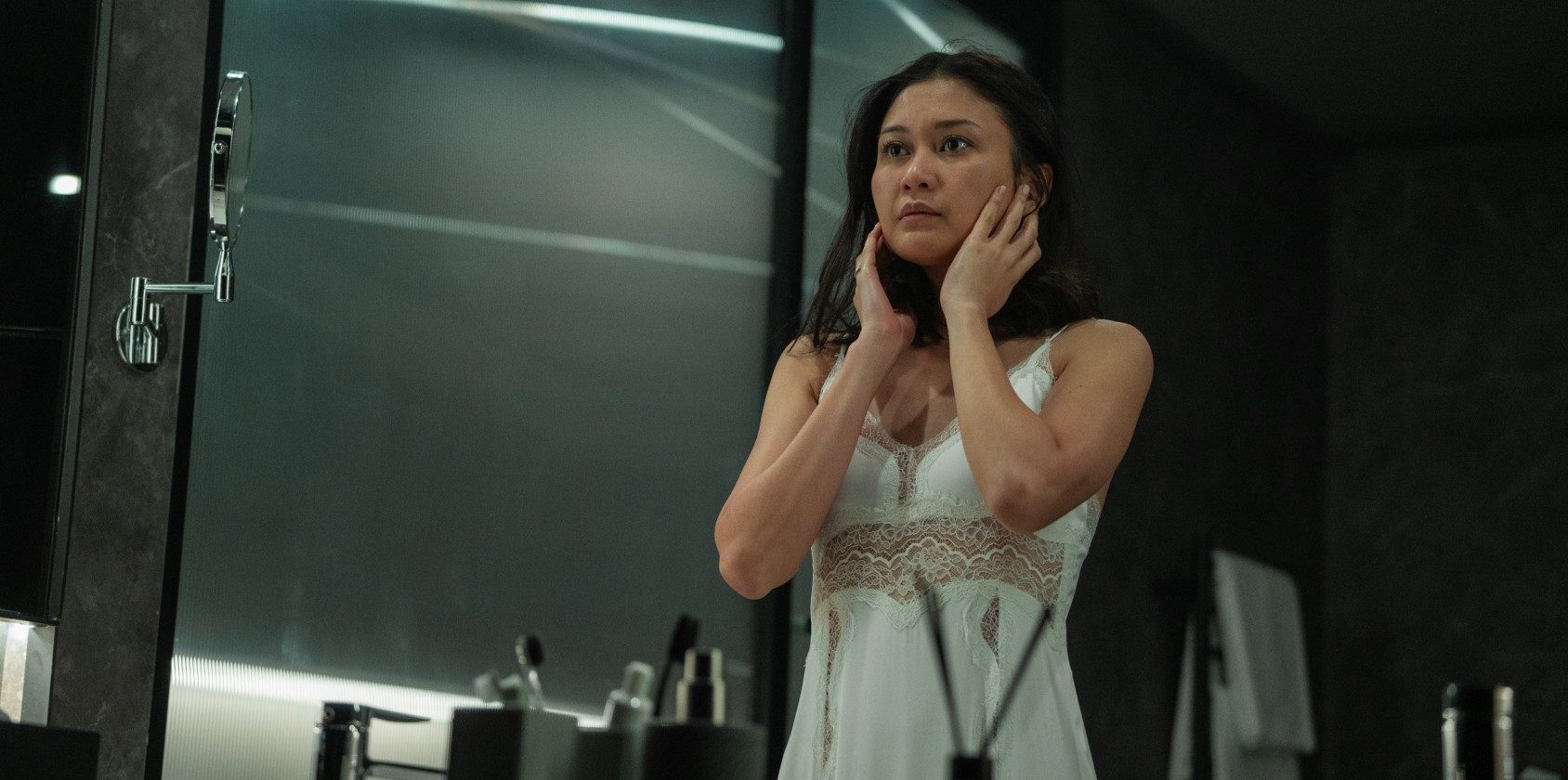
While the narrative appears to end on a bittersweet note, it is never confirmed whether the visions we see are from Milla’s future or purely her fantasy. However, given that the village scenes do not include any other person in them, it is likely that she is merely visualizing her life going forward. This does add up with the general moodiness of those images, which closely resemble the aesthetics of a village more than a village itself. On the other hand, the fact that she has a visible scar on her cheeks, right where she stabbed herself in the present, suggests that the scene might just be from the near future. It puts a positive spin on the other visions, making them a symbol of her empowerment.
However, there is a crueler possibility that the entire ending is merely a part of Milla’s hallucination, and in reality, she never made it past the doors. This idea is substantiated by a few previous details, most notably the fact that between her exit from the house and her entry into the truck, there is a complete white-out transition, which lingers on for a few moments. Such a transition is often used to segue into a dream sequence, which would line up in this case. Furthermore, we never see Hatta and Milla interacting once she is out, and her lying down on the truck is instead conveyed through an abrupt transition. Given all of this, the idea that this is one of her many complicated dreamscapes gains more footing. However, given Hatta’s promise to bring her to safety, it is still likely that she really does make it on the truck and head out for a fresh start at life.
Who is Grace? What Happened to Her?
Milla’s escape is her primary expression of rebellion against the restrictions placed on her by her husband, mother, and mother-in-law. As such, the context of her actions can be found in her dynamic with her family, which ultimately culminates in a confrontation with her past. Here, we learn the horrific truth. The child called Grace is none other than Milla herself. Specifically, it is her true identity from her childhood, which was subsequently erased by her mother and replaced with the persona of Milla. She was raised to be a picture-perfect woman who could easily attract wealthy individuals, and this soon bore fruit, leading to her marriage with Jonathan Gunawan, which catapulted the protagonist, along with her mother, to riches.
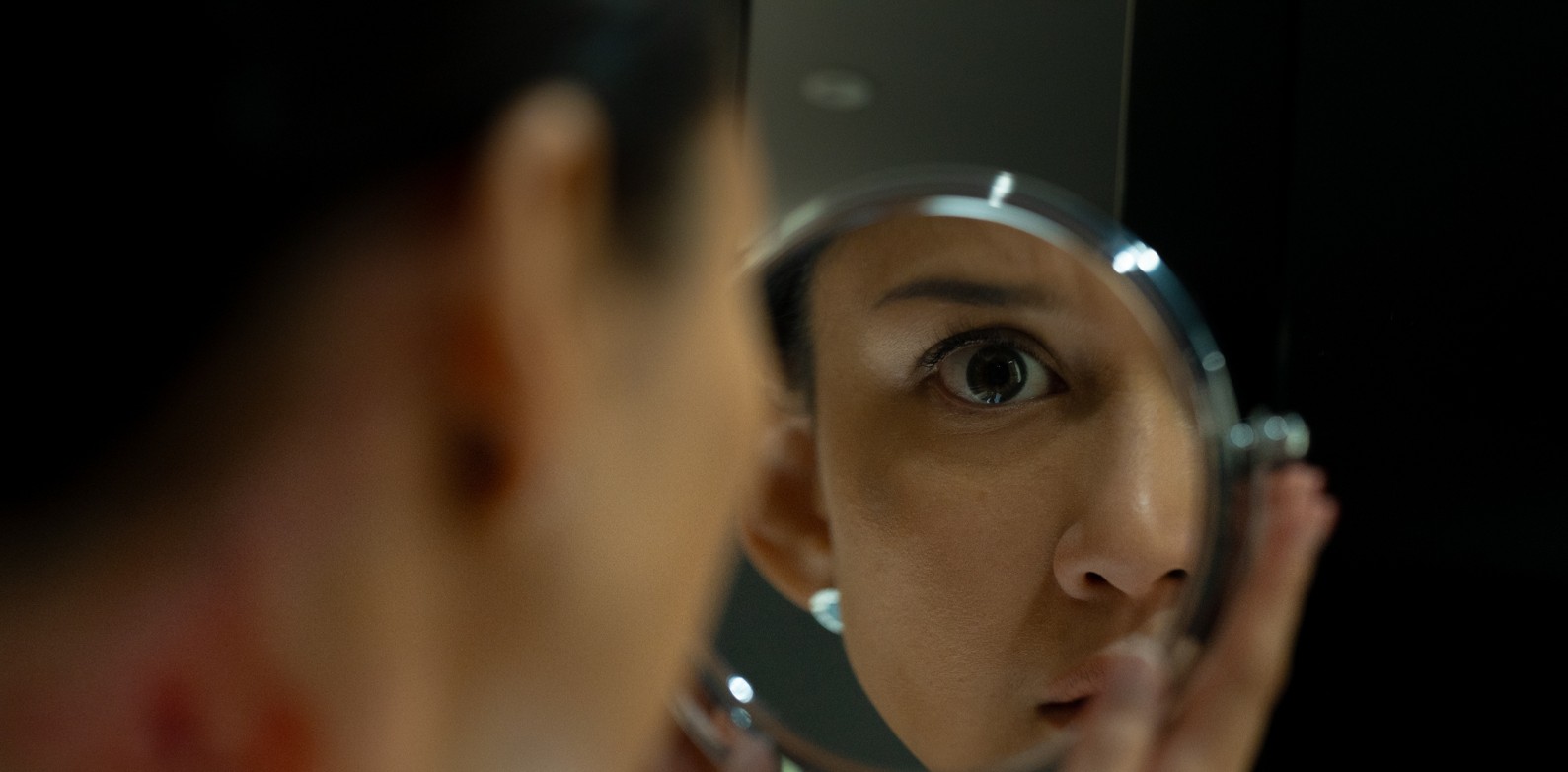
We are told the truth of what happened to Milla, as Grace, in a flashback section, which completely flips the narrative on its head. As a child, Grace was deemed unattractive, which made her a burden on her mother. This soon became a source of anxiety for the child as well, as she became the object of comparison to her own best friend, Erika. Soon, the obsession with appearance resulted in a case of fate, as a mirror that was being relocated fell right on top of Grace while she was looking at herself. The broken pieces of glass ended up tearing through her face, deeply scarring it. Furthermore, the resultant trauma caused her to forget her own identity. A moment of grief such as this was then maliciously morphed into an opportunity by her mother, Novi. A cosmetic surgeon was called to give Grace a traditionally attractive face, before she was renamed Milla.
When Milla learns that she has been living a lie, she is left completely shaken. More than the physical and ethical qualms of this series of actions, what hurts her the most is the psychological component. The idea that one’s entire life can be erased and altered has the potential for untold horrors, as it can strip away one’s ability to separate truth from lies. Furthermore, Novi’s actions display a complete disregard for a child’s bodily agency, and this likely becomes the source of Milla’s symptoms throughout the movie. The itches and the rash, then, are her subconscious, true self trying to come out by rupturing her cosmetic skin. Furthermore, her hallucinations of a disfigured girl, along with the motif of the glass shards, are likely a projection of her mind trying to prepare her for the truth.
Is Novi Dead or Alive?
At the heart of all the injustice done against Milla is her own mother, Novi, who surgically changed her daughter’s identity for a selfish reason. In the end, the protagonist confronts Novi about this fact, and instead of repenting, the latter doubles down on her original act and starts to remind her daughter of all the money that was spent on her cosmetic surgery. She further rebuffs Milla’s decision to become independent and tries to bring her down by stating that women deemed unattractive have no future. However, the protagonist refuses to budge from her original decision to leave the house and decides to go on the offensive. When Milla chooses to pierce her own skin in an act of rebellion, Novi tries to stop her, and in the ensuing scuffle, she hits the glass wall and falls down unconscious.
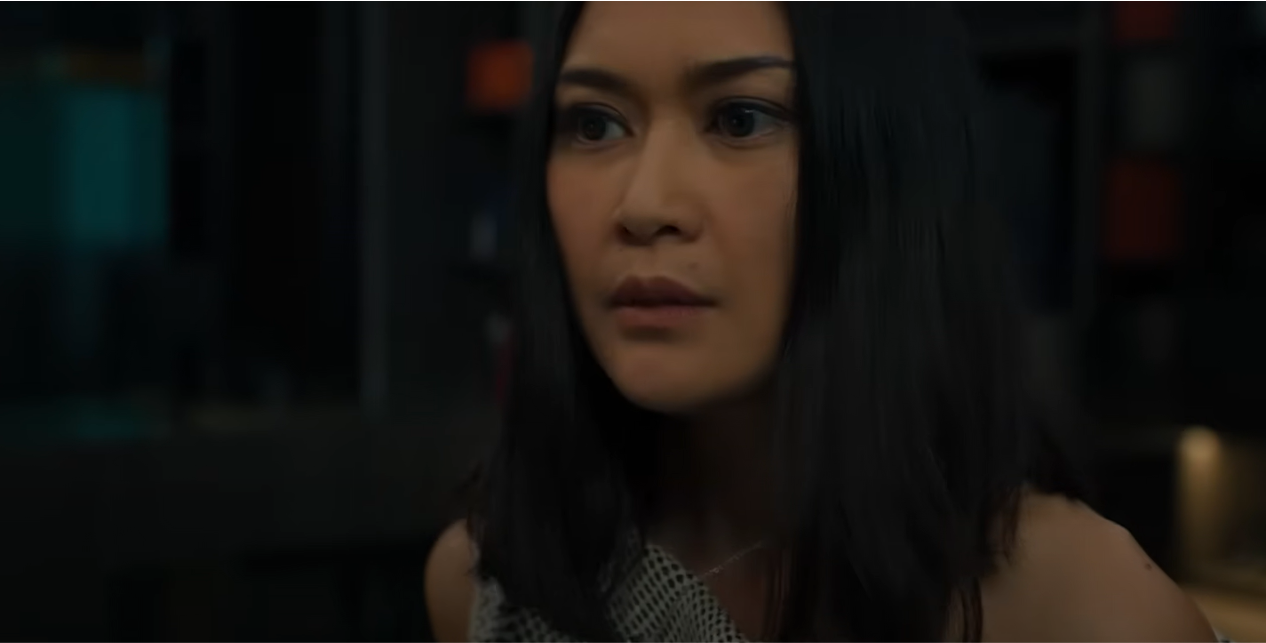
While we can see blood coming out of Novi’s injury, it doesn’t seem to be life-threatening. The same is echoed by Milla’s caretaker, Irah, who assures her that this can be taken care of, which gives the protagonist the motivation to let go and escape. Although Novi is likely to survive, her daughter’s exit from the Gunawan family certainly spells the end of the former’s life of riches and leisure. It is also likely that her home, which was given to her by Liliana, will be taken away, leaving the mother alone with the consequences of her actions. On the other hand, Milla can finally breathe freely as her old self again, with her mother not trying to take away chunks of her personality. Additionally, the protagonist is no longer bound by a set of beauty standards and can return to the simpler ways of living that she grew up with.
Does Erika Marry Jonathan?
In juxtaposition with Milla’s journey away from a life of luxury and elitism, her childhood best friend Erika slowly makes her way deeper into the circle of the rich. Over the course of the narrative, she impresses the matriarch Liliana, and this bears fruit in the end, when the latter asks Erika to help her rebuild her family and reputation. Although not made explicit, it is likely that Liliana wants Erika to marry Jonathan and bring stability to his life. This is further supported by the next scene, where she goes to comfort Jonathan and the two embrace each other in a moment of budding connection, one that likely leads to their marriage. What neither of the Gunawan family members knows, however, is that this has all been a part of Erika’s calculations, and she has essentially played them into making her a part of their family.
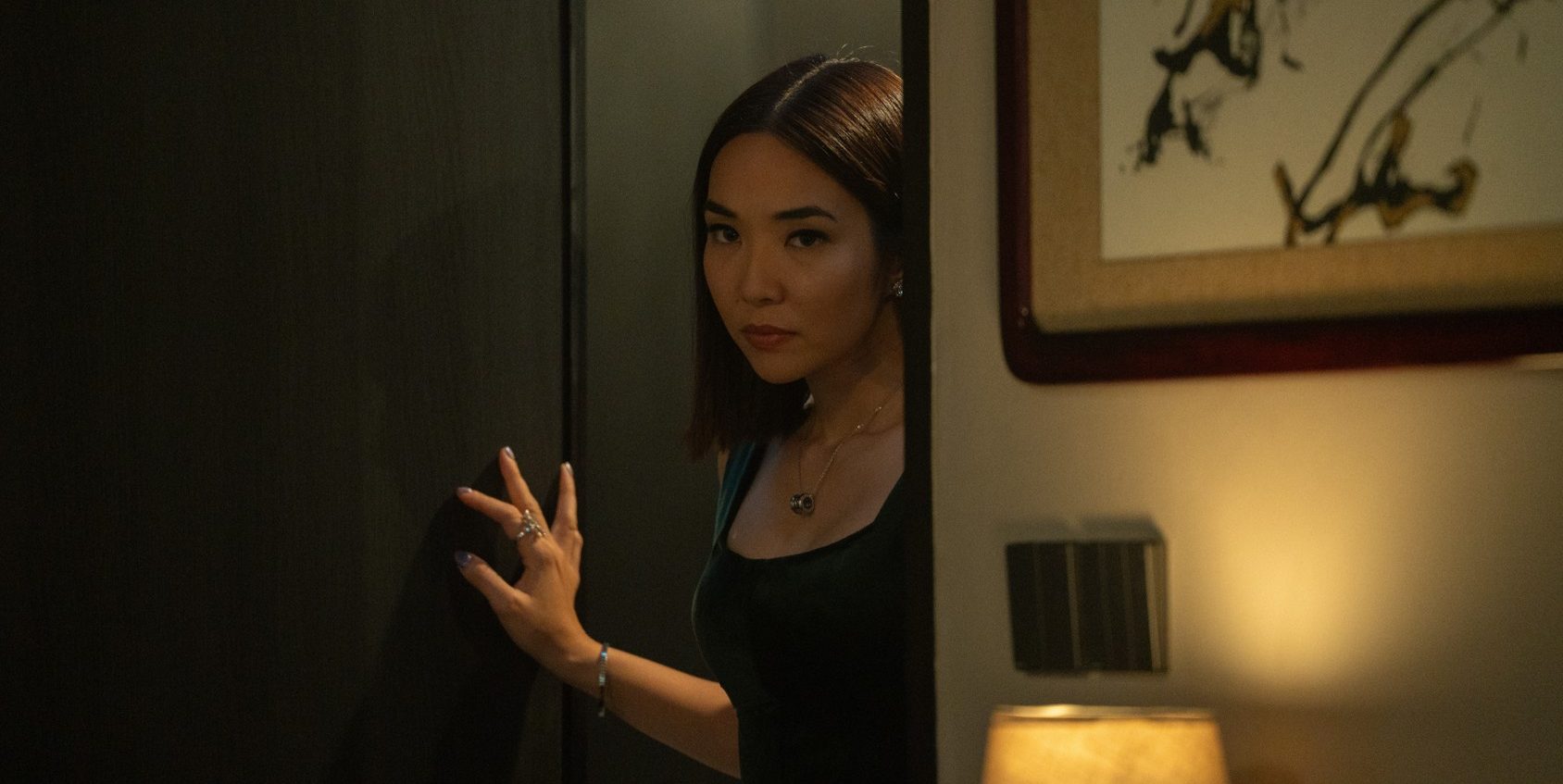
Erika’s reasons for doing so are particularly complicated. When Milla asks the same, she merely replies with “Survival.” However, the underlying reason can be traced back to a sequence from their childhood, where the two children discuss their potential futures. Erika seems assured that she will find a rich partner and get married. Following this, she promises to buy enough makeup for her friend to impress a rich person as well, so that they can be happy together. However, in reality, the exact opposite happens, as it is Milla who ends up with a wealthy husband, while Erika can be seen struggling to pay rent. As such, her nefarious plans are an attempt to tip the scales in her favour, and she is ultimately successful. This is symbolized by her emulating Milla’s pose on a poster, seemingly ready to take on the mantle herself.
Why Doesn’t Angel Run Away With Milla?
Milla’s relationship with her daughter, Angel, is a major aspect of the narrative, given that it is built on the back of the protagonist’s tumultuous relationship with her own mother. Angel’s conclusion, however, is that she doesn’t choose to follow the pattern set by her mother, nor box herself in the limitations added by her grandmothers. Instead, she chooses to carve out her own path and deal with all the trials and tribulations that might come her way. This is expressed in a conversation between mother and daughter, where Milla tries to convince Angel to join her on her escape to the village. Angel points out that, unlike Milla, she has lived her entire life in an urban landscape, and as such, going to the village will not be a similar return to normalcy for her.
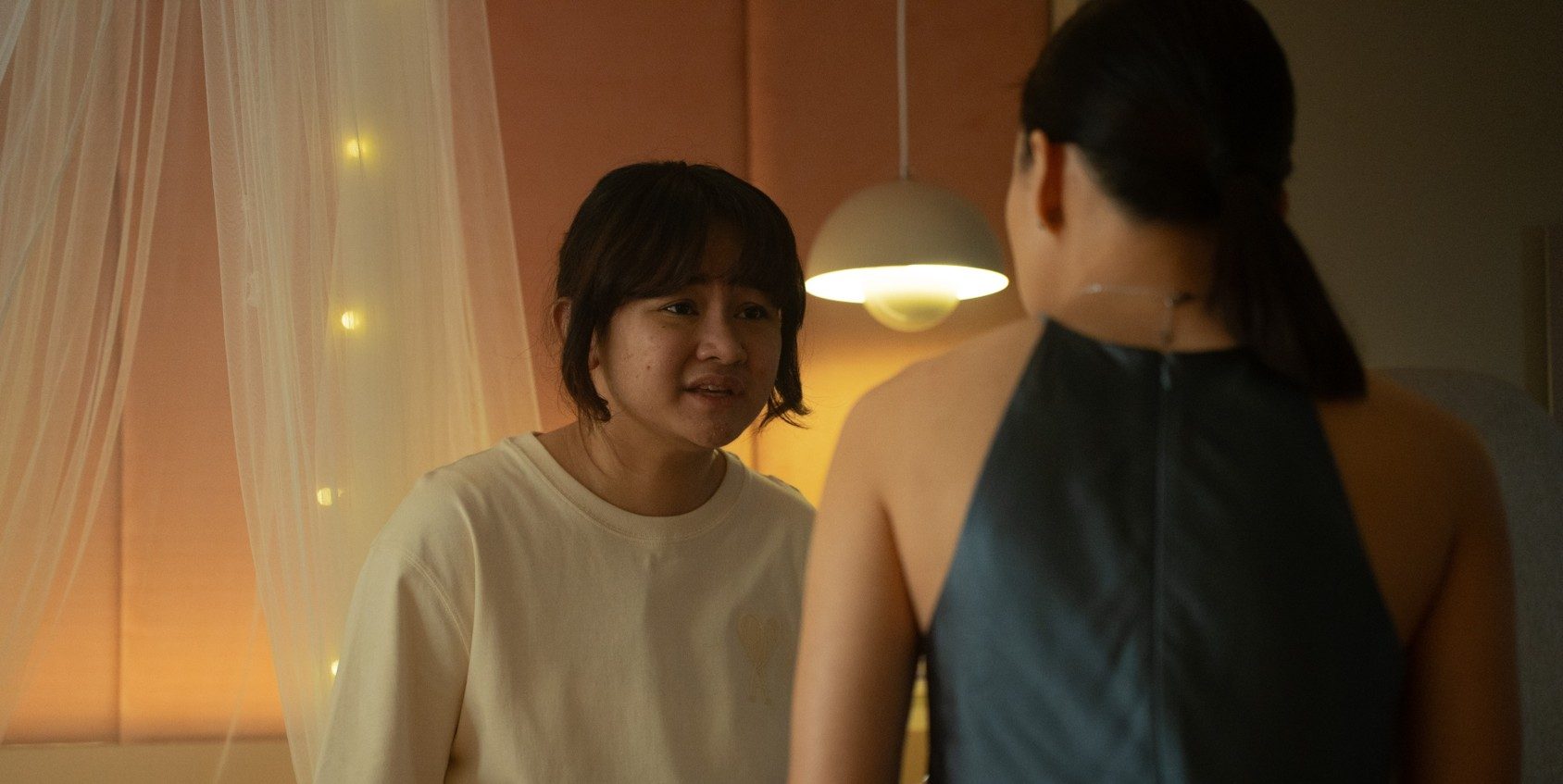
This points to an important nuance in the dynamic between Milla and Angel. In trying to get her daughter to come with her, she was attempting to undercut the latter’s agency and ability to handle her own problems. This results in a slippery slope that the protagonist narrowly avoids, thanks to Angel’s wisdom. As a person who has spent her entire life being harassed and ridiculed for her appearance, she knows how to deal with it, and conveys that same confidence to her mother before asking for her trust. Milla ultimately agrees, and this serves as a point of contrast to Novi, who failed to trust her daughter and instead imposed a lifestyle on her. For Angel, the path ahead is likely to be marked by more prejudice and hatred. However, her journey over the course of the narrative, from an insecure girl to one brimming with confidence, points to her ability to rise against all odds, much like her mother.
Read More: Is The Hunting Wives Based on a True Story?


